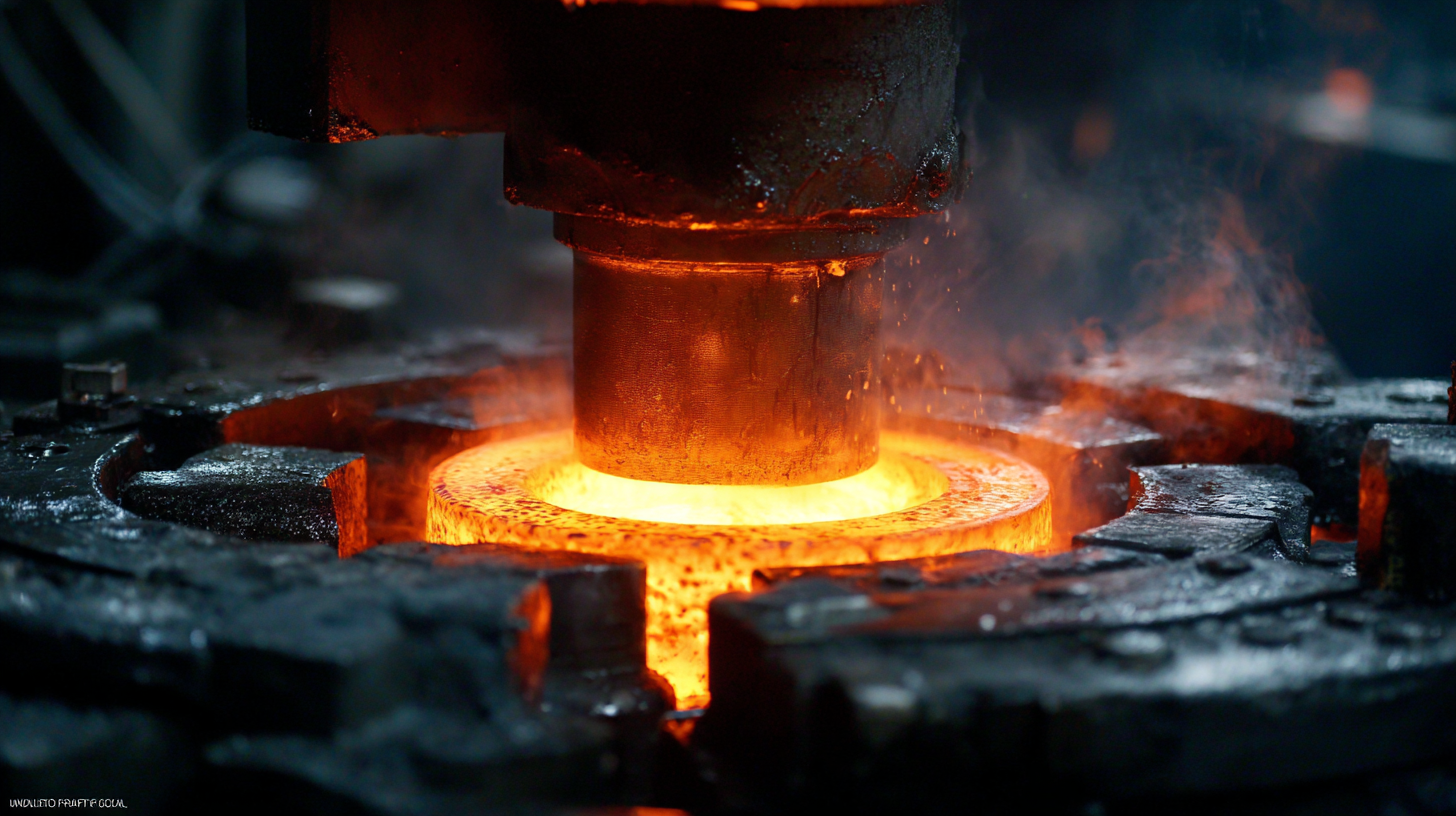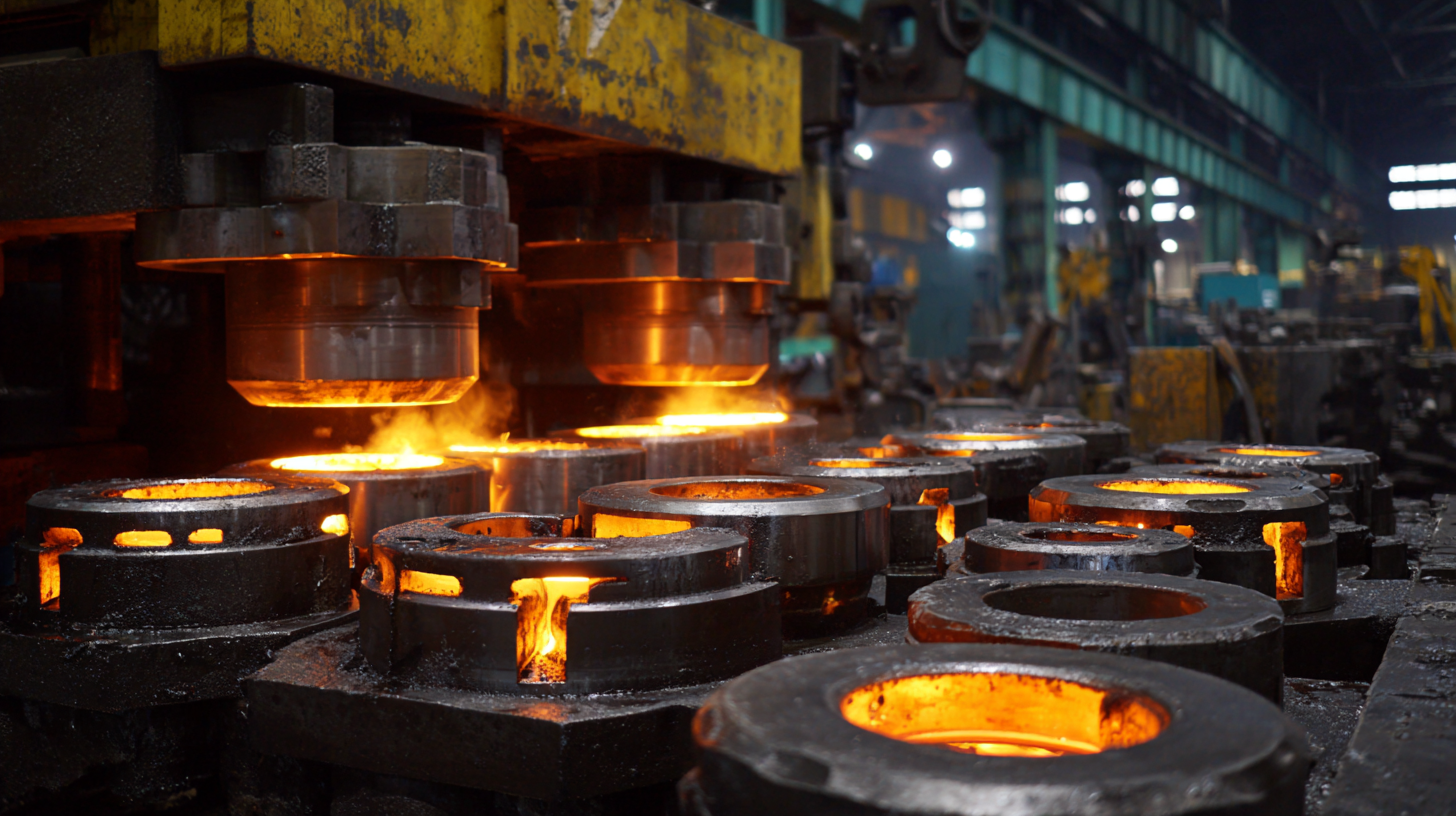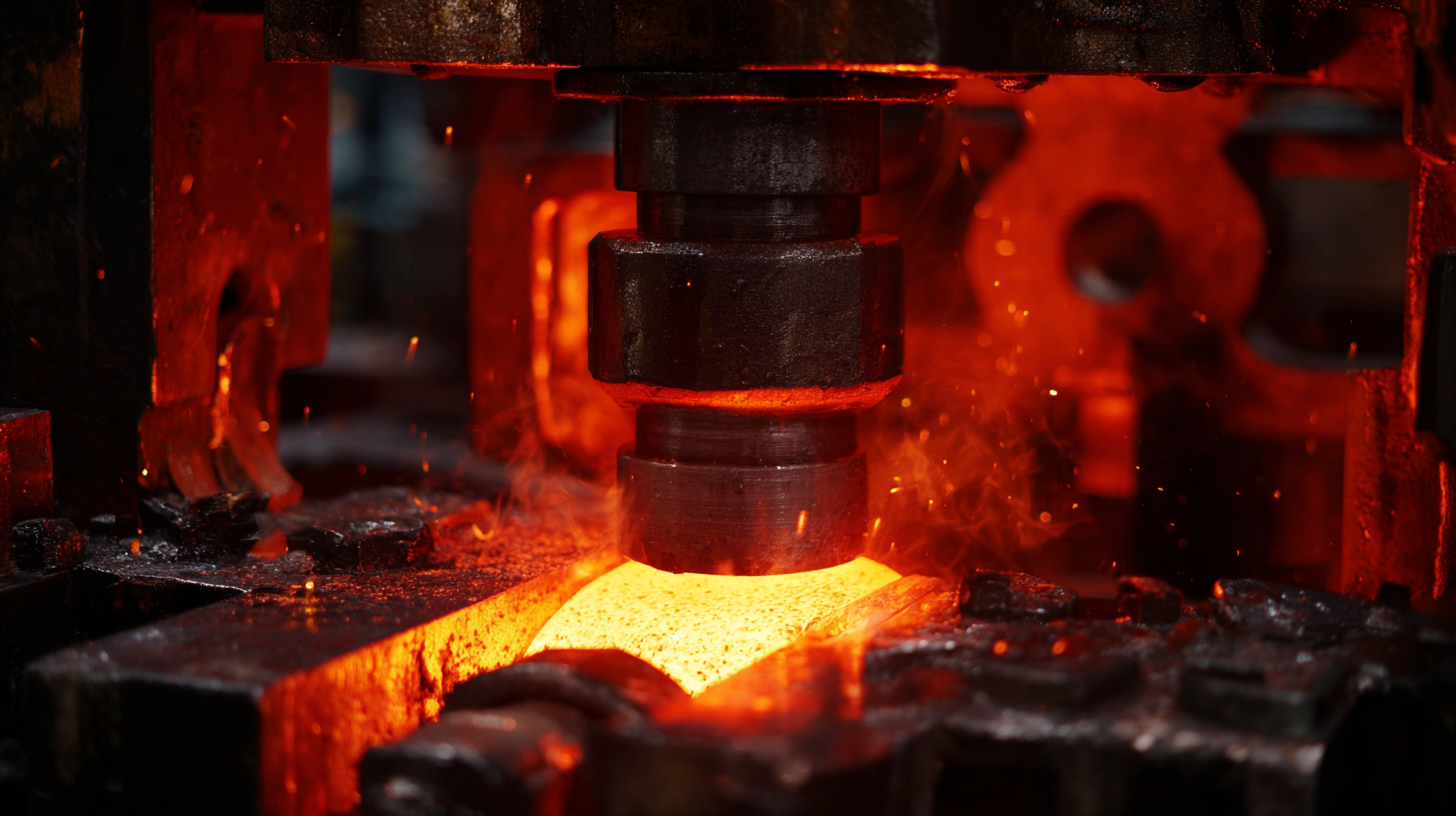Understanding the Benefits of Utilizing Best Forging Parts in Modern Manufacturing
In today's rapidly evolving manufacturing landscape, the utilization of high-quality Forging Parts plays a pivotal role in ensuring both efficiency and durability. According to a report by MarketsandMarkets, the global forging market is projected to reach USD 139 billion by 2025, reflecting a compound annual growth rate (CAGR) of 5.5%. This growth underscores the increasing reliance on forged components in various industries, including automotive, aerospace, and construction, where strength and precision are paramount.

Specifically, forged parts are recognized for their superior fatigue resistance and mechanical properties, which significantly enhance the lifespan of manufactured products. With China positioning itself as a leader in advanced manufacturing capabilities, it is clear that the commitment to producing world-class forging parts is not only a matter of national pride but also an essential strategy for global competitiveness. As we delve deeper into the myriad benefits of utilizing the best forging parts, it becomes evident how integral they are to modern manufacturing excellence.
The Importance of High-Quality Forging Parts in Modern Production Processes
In modern production processes, high-quality forging parts play a crucial role in enhancing the efficiency and reliability of manufacturing operations. Forging, a method that involves shaping metal using localized compressive forces, results in parts that possess superior strength and durability. This is particularly important in industries such as automotive and aerospace, where the integrity of components is paramount. High-quality forging parts not only improve the performance of the final products but also reduce the risk of failures, which can lead to costly downtimes and safety hazards.
Additionally, utilizing the best forging parts can significantly impact the overall productivity of manufacturing lines. Components that are precisely engineered and manufactured to meet strict specifications contribute to seamless assembly and reduced waste. This optimization in production not only leads to cost savings but also supports sustainability efforts by minimizing material waste. Furthermore, with advancements in forging technology, manufacturers can achieve a higher level of customization, allowing for tailored solutions that meet the specific needs of various applications. Emphasizing the importance of high-quality forging parts is essential for businesses aiming to maintain a competitive edge in today’s fast-paced manufacturing landscape.

Key Advantages of Using Certified Forging Components in Manufacturing
In the realm of modern manufacturing, utilizing certified forging components brings a myriad of advantages. One significant benefit is the enhanced strength and durability of forged parts compared to their cast or machined counterparts. This is due to the refined grain structure achieved during the forging process, which results in superior mechanical properties essential for high-stress applications. Moreover, the consistency and precision of certified forging components contribute to reduced downtime and lower maintenance costs, ultimately optimizing production efficiency.
**Tips for Selecting Forging Components:**
When choosing forging parts, look for suppliers who provide certifications and quality assurance tests. This ensures that the components you are using meet industry standards and specifications. Additionally, consider the material of the forging parts; selecting the right alloy can greatly impact performance and longevity in your manufacturing process.
Another advantage of using certified forging components is their flexibility in design. Manufacturers can have components tailored to specific requirements, which can lead to innovative solutions in product design. This adaptability allows businesses to stay competitive by responding swiftly to changing market demands while maintaining quality and functionality in their output.
Digital Transformation in Manufacturing: Enhancing Forging Practices
Digital transformation is rapidly reshaping the landscape of modern manufacturing, with forging practices being significantly enhanced through the integration of advanced technologies. According to a report by the International Federation of Robotics, production efficiency can increase by up to 30% when manufacturers adopt robotics and automation in their forging processes. This shift not only streamlines operations but also elevates the precision and quality of forged parts, which is crucial for industries such as automotive and aerospace where safety and reliability are paramount.
Moreover, the implementation of data analytics and IoT (Internet of Things) has opened new avenues for monitoring and optimizing forging practices. A study by McKinsey notes that manufacturers utilizing advanced analytics can experience a 20% increase in productivity and a 15% reduction in maintenance costs. By leveraging real-time data, companies can anticipate equipment failures and enhance the overall lifecycle of forging machinery. This proactive approach mitigates downtime and encourages sustainable practices, thereby aligning with the growing demand for eco-friendly manufacturing solutions.
Understanding the Benefits of Utilizing Best Forging Parts in Modern Manufacturing
This chart illustrates the key benefits of implementing advanced forging parts in modern manufacturing processes. The data highlights improvements in efficiency, cost reduction, and product quality.
Navigating Import and Export Certifications for Forging Parts
Navigating the import and export certifications for forging parts is essential for manufacturers looking to thrive in a global market. As countries tighten regulations to ensure the safety and quality of imported goods, businesses must stay informed about the necessary certifications and compliance requirements. For instance, recent developments in India regarding the Bureau of Indian Standards (BIS) certification highlight the need for aluminum and similar material products to meet stringent import criteria. Understanding these regulations is crucial for avoiding legal pitfalls and ensuring smooth transactions.
The proliferation of fake certificates poses significant risks in international trade. Recent incidents, such as the warning issued by the National Meat Inspection Service regarding counterfeit documents in the meat trade, serve as a critical reminder for manufacturers to verify their certification processes. Additionally, emerging scams involving forged trade documents can lead to severe penalties and loss of reputation for companies. Therefore, businesses must implement robust verification systems and remain vigilant when dealing with import-export certifications to safeguard their interests and integrity in the market.
Top Forging Technologies Shaping the Future of Manufacturing Industry
The landscape of modern manufacturing is significantly influenced by innovative forging technologies that are reshaping production methodologies. According to a recent report by MarketsandMarkets, the global forging market is expected to reach $165 billion by 2026, growing at a CAGR of 4.1% from 2021. This growth can be largely attributed to advancements in forging techniques such as precision forging and closed-die forging, which enhance efficiency and reduce material waste. These technologies are critical as industries strive for sustainability and cost-effectiveness in their operations.
Moreover, the integration of automation and digitalization in forging processes is revolutionizing the manufacturing sector. The International Journal of Advanced Manufacturing Technology highlights that incorporating Industry 4.0 principles, such as IoT and AI, can increase production rates by up to 30%. This level of automation not only accelerates the forging process but also improves the quality and precision of the parts produced. As manufacturers adopt these cutting-edge technologies, the benefits of utilizing the best forging parts become increasingly evident, offering superior strength, durability, and performance for a wide range of applications in industries such as automotive and aerospace.








